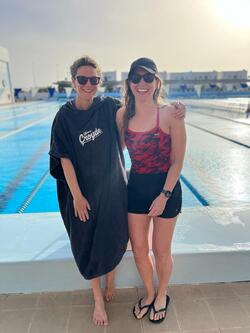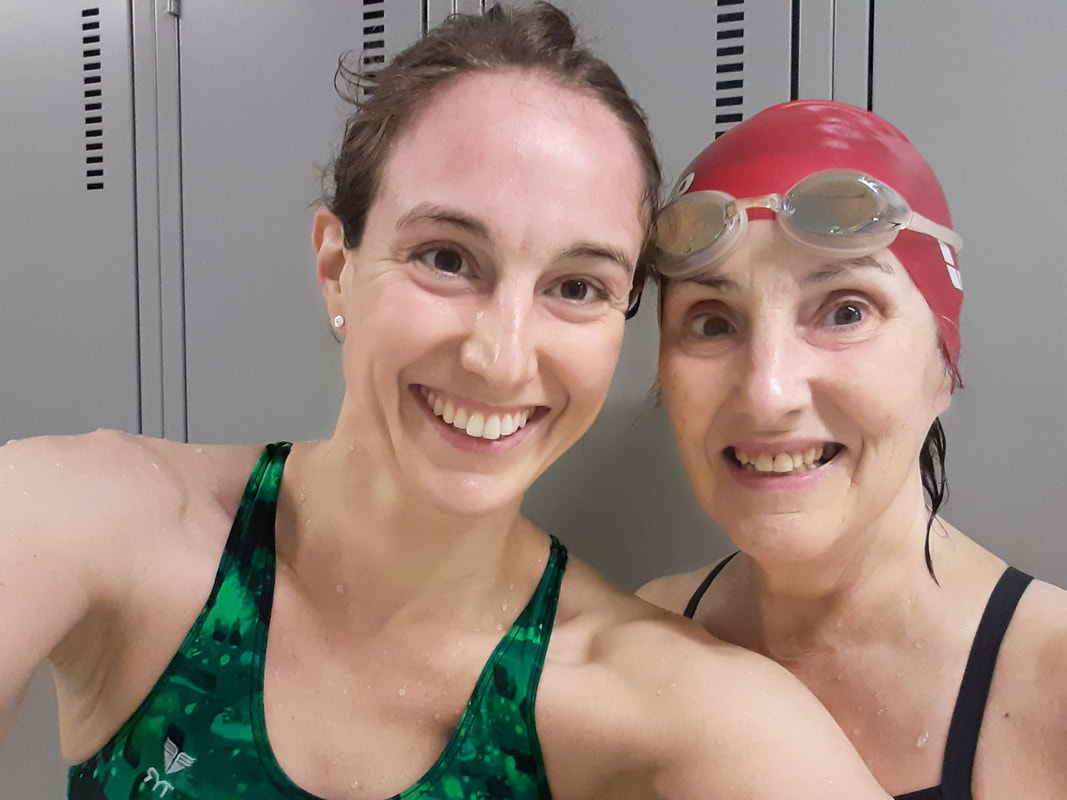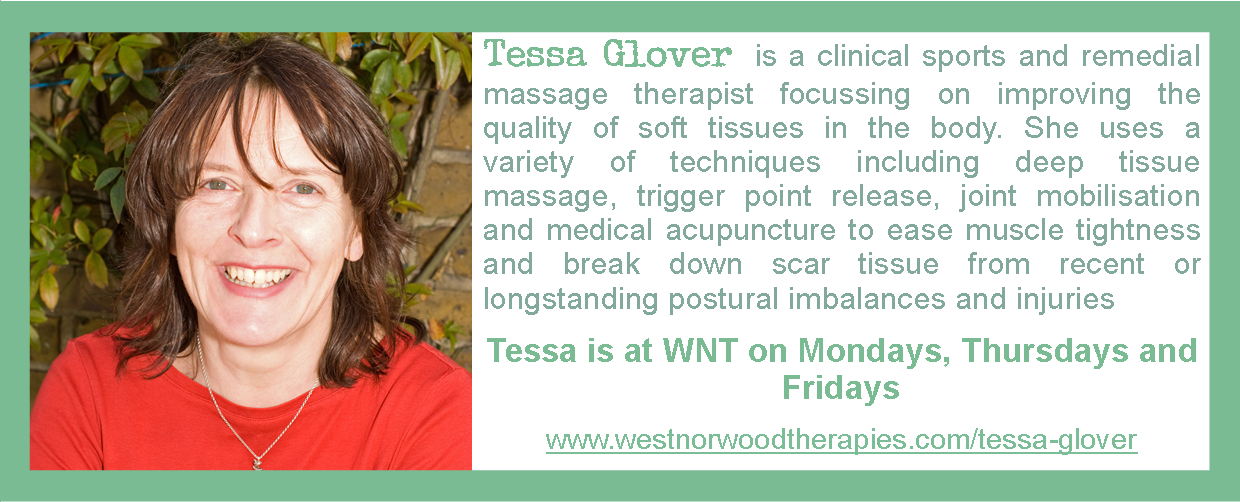|
Sports massage therapist Tessa Glover interviews her client Emily Hayter who is a competitive swimmer who trains with Spencer swimming club. Emily shares how she approaches training and competing and encourages us that swimming can be taken up at any age and stage. Thanks for sharing Emily!  How long have you been a competitive swimmer? I always loved the water and I swam competitively for a few years in my early teens while I was living in Canada. I swam on and off on my own after that but was mainly keeping active through other things. After a 17 year break from club swimming I joined a Masters club, Spencer, in London in my early 30s and started competing again. How did you come to choose your preferred swimming stroke and distance? It's changed since I was younger, partly due to injuries (eg no breastroke because of my knees so no medley events anymore). The only one of my favourite events from when I was younger which I'm still doing is the 50m butterfly. One thing that's great about pool swimming is you learn and practise all four strokes, so everyone finds their own favourite. Aside from the 50 fly I race all freestyle, everything from 100m to 1500m. This year I'm also doing my first open water event which will be 3800m. At some point I might need to choose between the short and long distances though, as it's difficult to train for both at the same time. What do you love most about swimming? What does it give you? As an adult, swimming in a club has brought me back to a regular fitness schedule, guided by a coach and in the company of great fellow swimmers. I get so much more from it than I was getting just from going to the gym. I've also made new friends and started going on swimming trips like training camps at Club La Santa in Lanzarote and sea swimming holidays in Italy with SwimTrek. I feel inspired by the older swimmers in Masters, many of whom are still racing and setting records in their 60s and beyond. Club swimming has brought me great examples of how to stay fit in later life. What's the toughest part of training for a competition? I've always been more of a training person than a racing person. I like training and usually go 3 times a week with Spencer. Some people are the opposite, they love racing but not so much training. The unpredictability can be tough in both training and racing. You have good days and bad days in the pool, and they can be quite random (ie not linked to diet, rest etc) which can be discouraging. So trust and confidence in the training you've been doing throughout the year is important. There's also a lot of technique to think about in swimming, and we work on that all the time. It's difficult to change ingrained habits and patterns of movement, and it takes patience. I usually find that as soon as I fix one technique detail I start doing something else wrong! So it's a continuous process. Can a swimmer get into competitive swimming as an adult? Definitely! I know several people who only started doing lane swimming or learned all the strokes as adults and then got into competitions, either in pool/Masters swimming, open water or triathlon. At my club not everyone competes in pool competitions, some people do triathlon or open water and others just train for fitness and don't compete at all. How do you look after yourself physically and mentally? I do pilates a few times a week, which helps with management of old knee and back injuries that would otherwise prevent me from swimming. Swimming encourages me to do these types of conditioning exercises I should have been doing before but wasn't motivated to do. I used to do yoga but after learning more about hypermobility I swapped to pilates and find it better for me. I also go for massages with Tessa at WNT which really helps me manage a neck issue I've developed. I'm lucky to have generally good mental health. I try to maintain it through exercise, work/life balance, social life and occasional restorative yoga. I love food and eat a lot but generally pretty healthily. Another thing I should have mentioned that swimming gives me is the excuse for a lot of snacking.
0 Comments
Leave a Reply. |
AuthorBlogs from the WNT team. For our blogs from before June 2020 please see individual profile pages - it's a good way to get to know practitioners too. Archives
June 2024
Categories
All
|
|
Visit us - by appointment only please - in the office block in the Access Self Storage premises at 443 Norwood Road, London, SE27 9DQ
[email protected] Phone - please contact practitioners directly, or if not in a rush you can leave a message for us to call you back at 07931876931. |


 RSS Feed
RSS Feed
